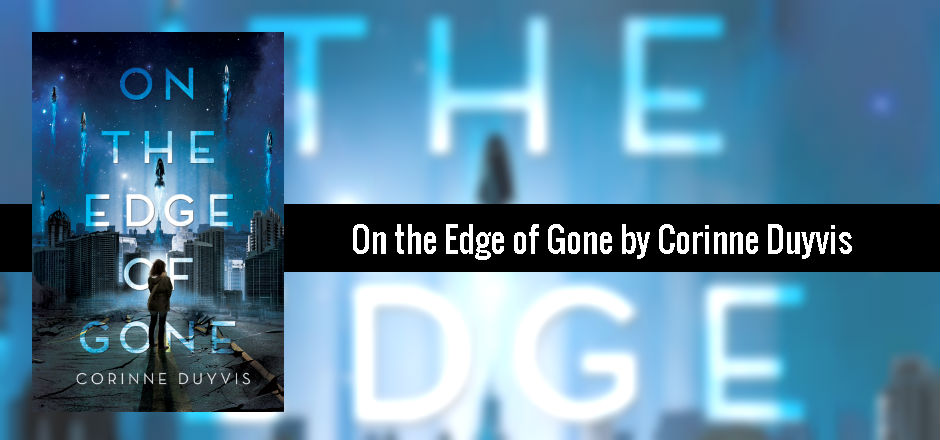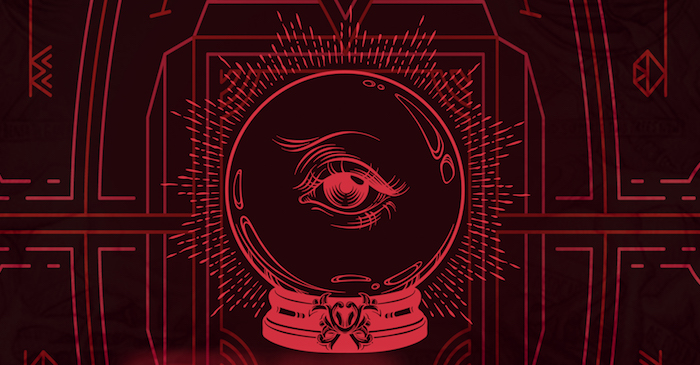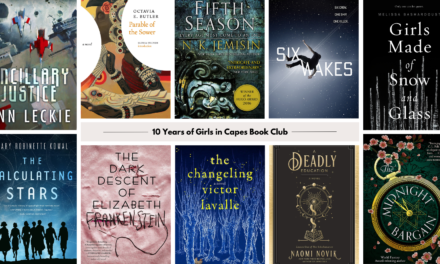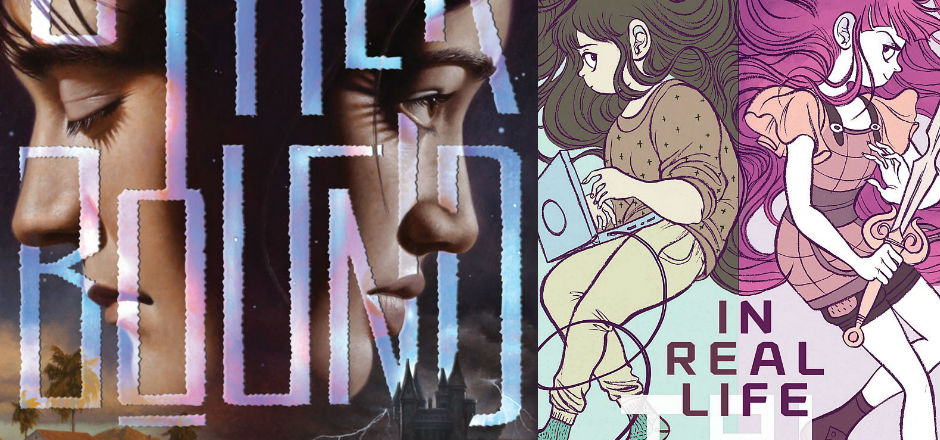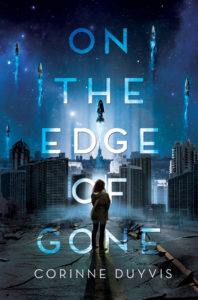 Having loved Otherbound so much, I couldn’t wait to get my hands on Corinne Duyvis’ new post-apocalyptic science fiction novel On the Edge of Gone, which was released in March 2016.
Having loved Otherbound so much, I couldn’t wait to get my hands on Corinne Duyvis’ new post-apocalyptic science fiction novel On the Edge of Gone, which was released in March 2016.
“There are skeletons in this earth.”
In the very near future, a comet is headed straight for Earth. Denise, her mother, and her sister Iris are supposed to be in a temporary shelter, but Iris is missing and they don’t want to leave without her. A series of setbacks land Denise and her mom on a last-minute spaceship that will soon leave the planet to colonize new worlds.
Denise is determined to remain on the ship and leave Earth, but not without her family. First she must find her sister. Then she must figure out how to keep them all as passengers, despite her mother’s drug dependency, her transgender sister being unable to procreate for future generations, and her own autism as road blocks. Denise also struggles with the existential crisis facing humanity, who to help and how much, and when to put yourself and your family first, before the health, happiness, and even lives of others.
Set in the author’s hometown of Amsterdam, this novel is strongest not in its sci-fi elements, but its rumination on the human condition. How would we as a people handle the many moral dilemmas that would accompany such a large-scale natural disaster?
Several characters face the impossible question: What makes a life worth saving? With citizens trapped in their temporary shelters and little hope for survival, Denise has to decide what help to offer without giving up her own options for vitality in the long run.
“I look at the sky and the dust that separates us from the stars that will be my home. I breathe in the night air, the rotten night air, and I miss,
I miss,
I miss.”
Something I love about Duyvis’ books is that she adds diversity with the seamlessness of reality. Many books introduce their diversity as some sort of tokenism or to make a statement, but in On the Edge of Gone, the characters are more than their labels, are fleshed-out individuals with personalities and motivations beyond that check box of ‘being different.’
I can in no way speak to the autistic experience, but Denise felt like an authentic character. Aspects of her communication methods and social interactions, like not wanting to be touched and repeating phrases when anxious, weren’t exaggerated or implausible. Denise never felt like a caricature or an after-school special — she wasn’t defined by her autism, but it was still a part of her.
There were a lot of open-ended conclusions for various plot lines, which I usually dislike, but Duyvis doesn’t do it in a cliffhanger-pull-my-hair-out-with-frustration kind of way.
Also, if you’re looking more science in your post-apocalypse, you should look elsewhere. Set in 2035 and character-driven, this is more possible-near-future than anything truly sci-fi. The only real technological advances are spacecrafts equipped for generations of people to live on them, and the fact that everyone has the equivalent of an Apple Watch.
This book reads like Station Eleven for teenagers, mixed with The 5th Wave (minus aliens) and just a touch of The Curious Incident of the Dog in the Night-Time. Though I admit to enjoying Otherbound more — I’ve always been more of a fantasy girl — On the Edge of Gone is a strong sophomore novel, and I anxiously await news on Corinne Duyvis’ next project.
4 out of 5 stars
—
Amber Neva Brown is Inventory Manager at Quail Ridge Books and a recent Masters graduate in Publishing at Rosemont College. She grew up in North Carolina, and her ultimate fandoms are Harry Potter and Doctor Who. She could recommend a book to probably anyone. Find her at Letters from a [Future] Editor and on Twitter at @ambernevabrown.
